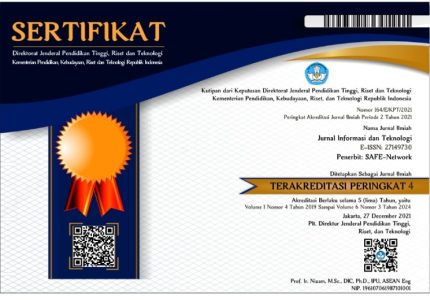Emerging Trends in Business Technology
Emerging trends in business technology continue to reshape the way companies operate and compete in the global market. From advancements in artificial intelligence and machine learning to the increasing adoption of cloud computing and cybersecurity measures, these innovations are driving efficiency, innovation, and competitive advantage. Staying informed about these developments is essential for businesses seeking to thrive in an ever-evolving digital landscape.
Artificial Intelligence and Machine Learning Advancements
Emerging trends in business technology are transforming industries by leveraging advanced artificial intelligence and machine learning solutions. Companies are increasingly adopting these innovations to enhance efficiency, improve decision-making, and deliver personalized customer experiences. Keeping abreast of these developments is essential for staying competitive in today’s fast-paced digital landscape.
- The integration of AI-driven automation tools is streamlining operations and reducing manual workload across various sectors.
- Advancements in natural language processing enable more sophisticated chatbots and virtual assistants, improving customer engagement and support.
- Machine learning algorithms are being utilized for predictive analytics, helping businesses forecast market trends and consumer behavior more accurately.
- Edge computing combined with AI is facilitating real-time data processing, which is crucial for IoT applications and instant decision-making.
- Ethical considerations and AI governance are gaining prominence, prompting organizations to develop responsible AI deployment strategies.
Blockchain Integration in Business Operations
Emerging trends in business technology are revolutionizing the way companies operate and compete in the global market. One of the most significant developments is the integration of blockchain technology into business operations, which enhances transparency, security, and efficiency. Blockchain facilitates improved supply chain management, streamlines payments, and enables secure data sharing across departments and partners. As organizations increasingly adopt decentralized ledgers, they reduce dependency on intermediaries and mitigate risks associated with fraud and data breaches. Additionally, blockchain’s potential for creating smart contracts automates complex transactions, saving time and costs. Overall, blockchain integration is transforming traditional business models, fostering greater trust and operational agility in an ever-evolving digital landscape.
5G Deployment and Its Impact on Business Connectivity
Emerging trends in business technology are significantly shaped by the rapid deployment of 5G networks, which are transforming how companies connect and operate. 5G offers unprecedented speeds, lower latency, and enhanced reliability, enabling businesses to adopt new innovative solutions and improve existing processes. This technology facilitates real-time data exchange, supports the growth of Internet of Things (IoT) devices, and enhances remote collaboration, thereby boosting productivity and operational efficiency. As more industries integrate 5G, organizations can leverage advanced analytics, augmented reality, and automation to gain competitive advantages. The deployment of 5G is also driving the development of smart factories, autonomous vehicles, and smart cities, fundamentally changing the landscape of business connectivity. Overall, 5G is a catalyst for digital transformation, offering businesses faster, more reliable internet connectivity that fosters innovation and accelerates growth in various sectors.
Digital Transformation Strategies
Digital transformation strategies are essential for businesses looking to stay competitive in the rapidly evolving technological landscape. By integrating innovative technologies and reshaping operational processes, companies can enhance efficiency, improve customer experiences, and foster sustainable growth. Staying informed about the latest developments in digital transformation is crucial for organizations aiming to adapt and thrive in today’s digital-first economy.
Cloud Computing Adoption and Cloud-first Approaches
Implementing effective digital transformation strategies is crucial for businesses aiming to stay competitive in today’s fast-paced market. These strategies often involve integrating advanced technologies to streamline operations, enhance customer experience, and foster innovation. Cloud computing adoption plays a pivotal role in this process by providing scalable, flexible, and cost-effective solutions that support digital initiatives. Many organizations are embracing cloud-first approaches, prioritizing cloud solutions for new projects to maximize agility and reduce time-to-market. By adopting a cloud-first mindset, businesses can rapidly deploy applications, improve collaboration, and ensure seamless integration across various departments, ultimately driving growth and operational efficiency in an increasingly digital world.
Automation and Robotic Process Automation (RPA)
Digital transformation strategies are essential for modern businesses aiming to stay competitive in an evolving technological landscape. These strategies involve integrating digital technologies into all aspects of operations to improve efficiency, enhance customer experiences, and enable innovative business models. Automation plays a critical role in this process by streamlining repetitive tasks and reducing operational costs. Robotic Process Automation (RPA) specifically allows organizations to deploy software robots that perform rule-based tasks, such as data entry, processing transactions, and generating reports, with high accuracy and speed. Implementing RPA within digital transformation efforts can lead to significant productivity gains, improved compliance, and freeing up human resources for more strategic activities. As businesses continue to adopt these technologies, they are shaping a more agile and responsive future, increasingly reliant on automation tools to drive growth and innovation.
Legacy System Modernization Challenges
Digital transformation strategies are essential for organizations aiming to stay competitive in a rapidly evolving technology landscape. These strategies often involve leveraging cloud computing, data analytics, and innovative tools to enhance operational efficiency and customer experience. However, one of the significant hurdles faced during digital transformation is legacy system modernization. Legacy systems, which are often deeply embedded in business processes, can be outdated, inflexible, and costly to maintain, impeding agility and innovation.
Modernizing these systems presents numerous challenges, including high costs, potential downtime, and the risk of data loss. Additionally, integrating new technologies with existing infrastructure can be complex, requiring specialized skills and a strategic approach. Despite these hurdles, successful modernization can lead to improved scalability, enhanced security, and better alignment with modern business needs, making it a critical component of comprehensive digital transformation strategies.
Cybersecurity Developments
In today’s rapidly evolving digital landscape, cybersecurity developments are more critical than ever for businesses seeking to protect their assets and maintain customer trust. Recent advancements in threat detection, encryption, and proactive defense strategies are transforming how organizations safeguard their data. Staying informed about these innovations is essential for businesses to stay ahead of cyber threats and ensure robust security in a connected world.
Latest Threats and Attack Vectors
Recent developments in cybersecurity highlight a rapid evolution of threats and attack vectors that pose significant challenges to organizations worldwide. As technology advances, cybercriminals increasingly leverage sophisticated techniques such as AI-driven malware, zero-day exploits, and supply chain attacks to breach defenses. The proliferation of remote work has also expanded the attack surface, making endpoint security and endpoint detection and response (EDR) solutions more critical than ever. Additionally, ransomware remains a dominant threat, with hackers encrypting critical business data and demanding hefty ransom payments. Phishing campaigns continue to evolve with more convincing tactics, including deepfake technology and personalized messages designed to deceive employees. Organizations are adopting integrated security frameworks, zero-trust architectures, and continuous threat intelligence to stay ahead of these emerging challenges. Staying informed about the latest attack vectors and implementing proactive security measures are essential for safeguarding business technology infrastructure in this dynamic threat landscape.
Security Frameworks and Compliance Updates
Recent developments in cybersecurity have emphasized the importance of advanced threat detection and response strategies to safeguard business digital assets. Organizations are increasingly adopting integrated security frameworks such as Zero Trust Architecture and NIST Cybersecurity Framework to enhance their defense mechanisms.
Alongside these frameworks, there has been a notable shift toward automating security protocols to respond swiftly to emerging threats. Compliance updates are also reflecting the evolving landscape, with regulations like GDPR, CCPA, and ISO 27001 requiring companies to implement robust data protection measures and regularly update their security policies.
Furthermore, industry leaders are advocating for greater transparency and accountability in cybersecurity practices, encouraging businesses to conduct regular risk assessments and staff training initiatives. These measures aim to create a resilient security posture capable of mitigating sophisticated cyber threats and ensuring compliance with increasingly stringent regulatory standards.
Zero Trust Architecture Adoption
Recent developments in cybersecurity highlight a significant shift towards Zero Trust Architecture (ZTA), transforming how organizations safeguard their digital assets. This approach emphasizes strict access controls, continuous verification, and minimalTrust assumptions, which are proving effective against increasingly sophisticated cyber threats.
- Many enterprises are adopting Zero Trust models to enhance security posture amid rising ransomware and phishing attacks.
- Implementation involves granular identity verification, multi-factor authentication, and real-time threat detection.
- Cloud migration strategies are integrating Zero Trust principles to protect remote and hybrid workforces.
- Security vendors are offering advanced Zero Trust solutions with AI-driven analytics for proactive threat mitigation.
- Organizations investing in Zero Trust report improvements in breach detection times and data protection compliance.
Business Technology Solutions and Tools
Business technology solutions and tools play a vital role in enhancing the efficiency and productivity of modern enterprises. They enable organizations to streamline operations, improve communication, and gain valuable insights through innovative software and hardware applications. Staying updated with the latest business technology news ensures companies remain competitive in an ever-evolving digital landscape.
Enterprise Resource Planning (ERP) Innovations
Business technology solutions and tools are continuously evolving to enhance efficiency and competitiveness in the modern marketplace. One of the most significant advancements in this area is the development of innovative Enterprise Resource Planning (ERP) systems. These innovations are designed to integrate core business processes such as finance, supply chain, manufacturing, and human resources into a unified platform, enabling real-time data access and improved decision-making. Recent ERP innovations focus on cloud-based deployment, artificial intelligence integration, and increased scalability, allowing organizations of all sizes to customize and expand their ERP capabilities effortlessly. As businesses adopt these cutting-edge solutions, they gain a competitive edge through streamlined operations, enhanced data accuracy, and greater agility in responding to market changes.
Customer Relationship Management (CRM) Enhancements
Business technology solutions and tools have become essential for organizations seeking to improve efficiency, increase productivity, and better serve their customers. Among these, Customer Relationship Management (CRM) enhancements play a vital role in transforming how businesses engage with their clients. Advanced CRM systems now incorporate artificial intelligence, automation, and analytics to provide deeper insights into customer behaviors and preferences. These innovations enable companies to personalize interactions, streamline sales processes, and foster long-term loyalty. Additionally, integrating CRM with other enterprise systems facilitates seamless data sharing and enhances overall operational agility. As technology continues to evolve, businesses that leverage these modern CRM enhancements will be better positioned to adapt to changing market demands and deliver superior customer experiences.
Collaboration and Productivity Software
Business technology solutions and tools play a vital role in enhancing collaboration and productivity within organizations. These technologies enable teams to work efficiently, communicate seamlessly, and manage resources effectively, which are essential for maintaining a competitive edge in today’s fast-paced digital environment.
- Collaboration tools such as Slack, Microsoft Teams, and Zoom facilitate real-time communication and teamwork across different locations.
- Productivity software including Microsoft Office Suite, Google Workspace, and project management platforms like Asana and Trello streamline daily tasks and project workflows.
- Cloud-based solutions allow for scalable storage, remote access, and secure data sharing, supporting flexible work arrangements.
- Integration of artificial intelligence and automation tools further boosts efficiency by automating routine processes and providing data insights.
- Upcoming trends in business technology involve the adoption of AI-driven analytics, enhanced cybersecurity measures, and the increasing use of collaborative platforms powered by new innovations.
Data Analytics and Business Intelligence
Data analytics and business intelligence are essential tools for modern organizations seeking to stay competitive in a rapidly evolving digital landscape. By harnessing the power of data, businesses can uncover valuable insights, identify trends, and make informed decisions that drive growth. These technologies enable companies to transform vast amounts of information into actionable strategies, ultimately enhancing operational efficiency and customer experience.
Real-Time Data Processing Technologies
Data Analytics and Business Intelligence are essential components of modern business technology, enabling organizations to transform raw data into actionable insights. These tools help businesses identify trends, optimize operations, and make informed decisions that enhance overall performance. With advancements in technology, real-time data processing has become increasingly important, allowing companies to react swiftly to changing market conditions. Technologies such as Apache Kafka, Apache Flink, and Spark Streaming facilitate the ingestion, processing, and analysis of live data streams, ensuring that businesses stay agile and competitive. Integrating these innovations into business strategies is crucial for maintaining a competitive edge in today’s fast-paced digital landscape.
Data Privacy and Ethical Use of Data
Data Analytics and Business Intelligence are crucial components of modern business strategies, enabling organizations to extract valuable insights from vast amounts of data. These tools help companies make informed decisions, optimize operations, and identify new opportunities by analyzing trends and patterns. As businesses increasingly rely on data-driven approaches, understanding data privacy and the ethical use of data has become vital. Ensuring the protection of sensitive information and respecting individual privacy rights fosters trust and compliance with legal standards. Ethical considerations in data management not only prevent misuse but also promote responsible innovation in business technology, supporting sustainable growth and reputation in the competitive market.
Visualization Tools and Dashboards
Data Analytics and Business Intelligence play a crucial role in helping organizations make informed decisions by transforming raw data into meaningful insights. These tools enable businesses to identify trends, patterns, and opportunities that may not be immediately apparent. Visualization tools and dashboards are essential components of this ecosystem, providing an intuitive way to present complex data visually. They allow users to quickly grasp key metrics and performance indicators through charts, graphs, and interactive elements, facilitating faster decision-making and strategic planning. As business technology continues to evolve, these tools are becoming increasingly sophisticated, integrating real-time data analysis and advanced analytics to enhance operational efficiency and competitive advantage.
Startups and Innovation in Business Tech
Startups and innovation play a crucial role in shaping the future of business technology. They drive forward-thinking solutions, introduce disruptive ideas, and foster a dynamic environment where new technologies can flourish. In the fast-paced world of business tech, startups are often at the forefront of innovation, bringing fresh perspectives and agile approaches that challenge traditional industries. Staying updated with the latest developments in this sector is essential for understanding how technology continues to transform the way businesses operate and compete.
Investments in Tech Startups
Startups play a crucial role in driving innovation within the business technology landscape, continuously pushing the boundaries of what is possible with new ideas and cutting-edge solutions. Investment in tech startups has surged in recent years, reflecting a strong belief in the potential for these emerging companies to revolutionize industries and generate substantial returns. As entrepreneurs develop innovative products and services, venture capitalists and corporate investors are increasingly eager to fund ventures that promise to enhance efficiency, scalability, and competitiveness. This influx of capital fosters a vibrant ecosystem where technological advancements can rapidly evolve, ultimately shaping the future of business technology and creating competitive advantages for early adopters.
Innovative Business Models Enabled by Technology
Startups and innovation in business technology are redefining the way companies operate and compete in the modern marketplace. Leveraging cutting-edge advancements, startups are developing innovative business models that enhance efficiency, customer engagement, and scalability. These models often rely on technology such as cloud computing, artificial intelligence, blockchain, and IoT to create new value propositions and disrupt traditional industries. As a result, businesses are becoming more agile, data-driven, and responsive to market changes, fostering a dynamic environment of continual innovation driven by technological breakthroughs.
Incubators and Accelerators Focused on Business Tech
Startups and innovation play a crucial role in shaping the future of business technology, driving advancements and creating new markets. Incubators and accelerators focused on business tech provide essential support, mentorship, and resources to early-stage companies, helping them scale rapidly and effectively. These programs often connect startups with industry leaders, investors, and cutting-edge research, fostering an environment where innovative solutions can thrive. As the landscape of business technology evolves, such initiatives continue to be instrumental in promoting disruptive ideas and integrating emerging technologies like AI, blockchain, and IoT into mainstream business practices. Keeping abreast of developments in this sector is vital for players seeking competitive advantage and sustainable growth in the digital age.
Regulatory and Ethical Considerations

In the rapidly evolving landscape of business technology, understanding regulatory and ethical considerations is essential for companies aiming to innovate responsibly. These considerations ensure that technological advancements comply with legal standards and uphold moral principles, fostering trust among consumers and stakeholders. Navigating these complex issues is crucial for maintaining a reputable and sustainable business in the digital age.
Data Regulations and Global Compliance
Regulatory and ethical considerations are paramount in the evolving landscape of business technology, ensuring that advancements comply with legal standards and uphold moral responsibilities. Data regulations such as GDPR, HIPAA, and CCPA set strict guidelines for data collection, storage, and sharing, emphasizing user privacy and consent. Global compliance requires organizations to navigate a diverse array of local laws and standards, often necessitating robust data governance strategies. Staying ahead in this environment involves continuous monitoring of regulatory changes, implementing secure data practices, and fostering a culture of transparency and ethical responsibility to build trust and mitigate legal risks.
Ethical Use of AI and Automation
Ensuring the ethical use of AI and automation in business technology involves addressing regulatory and ethical considerations that safeguard against misuse and promote responsible innovation. Companies must adhere to relevant laws and industry standards to prevent unintended harm and protect stakeholder interests. Ethical use of AI emphasizes transparency, fairness, and accountability, ensuring decision-making processes are explainable and free from biases. As organizations increasingly integrate these technologies, it is vital to establish guidelines that uphold privacy rights, prevent discrimination, and promote trust among users. Navigating these considerations not only mitigates legal risks but also enhances corporate reputation and fosters sustainable growth in the dynamic landscape of business technology.
Impact of Trade Policies on Technology Adoption
Regulatory and ethical considerations play a crucial role in shaping the landscape of technology adoption within the business sector. Companies must navigate complex legal frameworks related to data privacy, cybersecurity, and intellectual property rights while ensuring their innovations adhere to ethical standards. These regulations can either facilitate or hinder the deployment of new technologies, impacting innovation pace and market competitiveness.
Trade policies significantly influence the adoption of technology by affecting cross-border commerce and the availability of technological resources. Favorable trade agreements can promote the import of advanced technologies and foster collaboration, accelerating innovation. Conversely, trade restrictions or tariffs may increase costs, limit access to vital tech infrastructure, and delay the deployment of new solutions, ultimately shaping the strategic decisions companies make in adopting emerging technologies.





